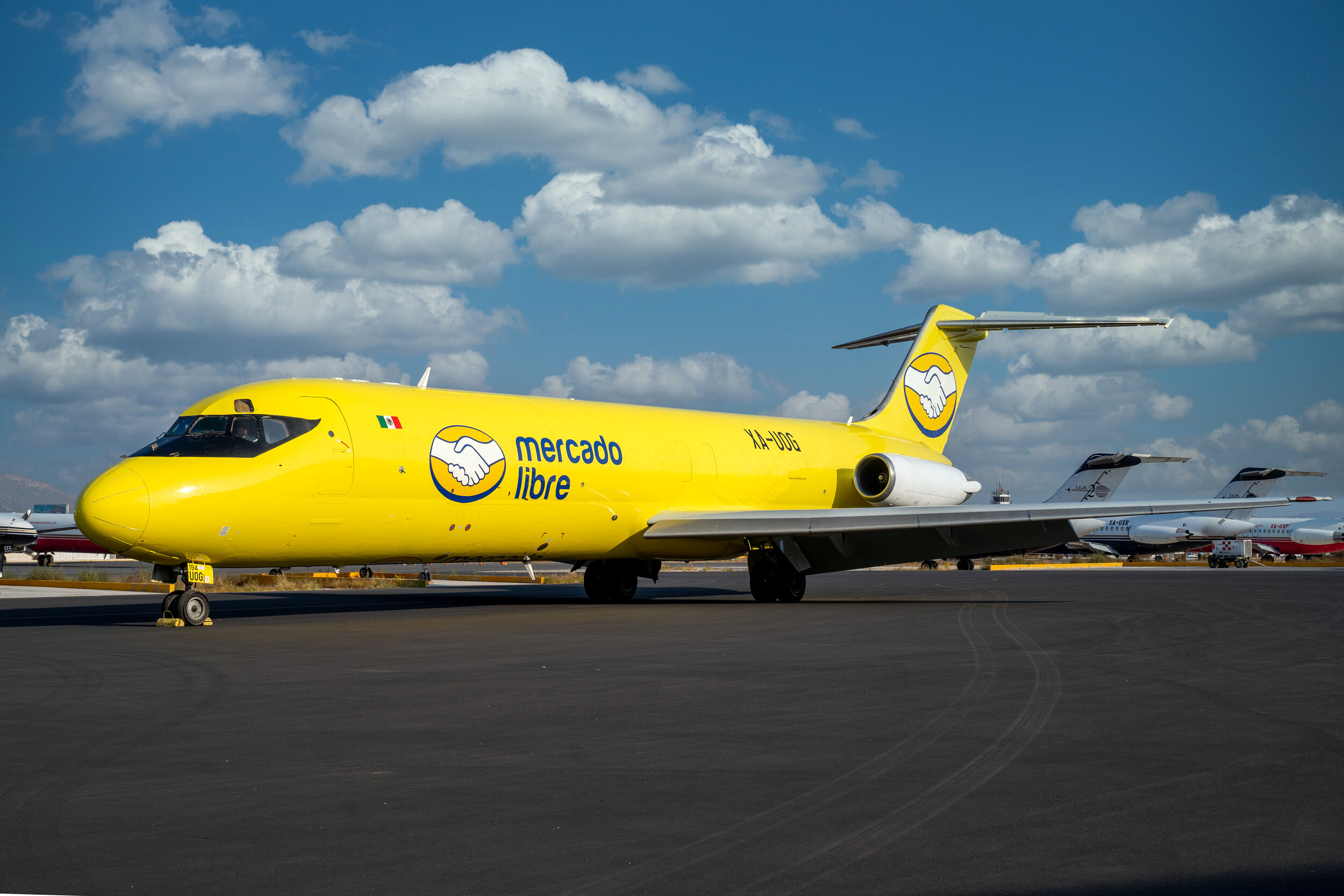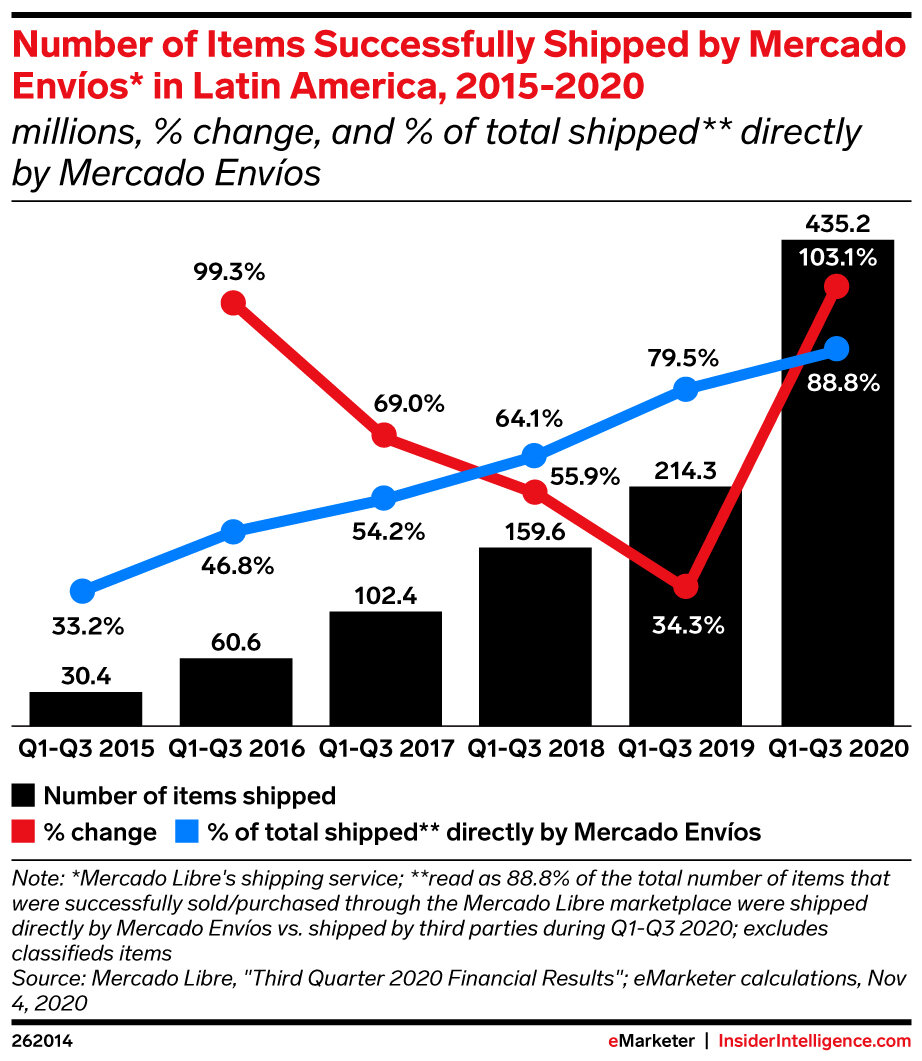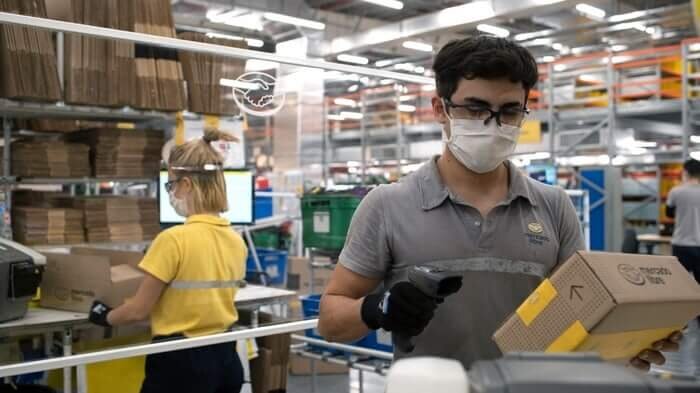How Mercado Envíos Is Working to Improve Latin America’s Underdeveloped Logistical Infrastructure
This article was originally published on eMarketer's blog. Click here to read this and other articles.
Logistics have become vital to the success of any business that sells its products and services online. In Latin America, the ability to make quick and on-time deliveries—especially outside of major urban centers—often proves to be a complex task due to large swaths of unpaved roads and underdeveloped infrastructure in many countries.
While delivery players such as DHL, FedEx, UPS, and local postal services have been working to improve their logistical operations in the region, online marketplace Mercado Libre also threw its hat in the ring in 2013 with the launch of its shipping management service, Mercado Envíos.
The company has been making inroads since. Between Q1 and Q3 2020, 489.9 million items were sold via its marketplace, and among them, 88.8%—or 435.2 million items—were shipped directly by Mercado Envíos. That's more than double the 214.3 million items shipped during the same period in 2019.
eMarketer|Insider Intelligence recently spoke with Ariel Szarfsztejn, senior vice president of Mercado Envíos, about the challenges the company has navigated through over the years and its ongoing sustainability efforts. The following interview has been edited for brevity and clarity.
Ariel Szarfsztejn, senior vice president of Mercado Envíos. Courtesy of Mercado Libre.
Latin America represents more than 15% of the Earth’s land surface. With Mercado Envíos' market existing in such an expansive region, what are some logistical challenges it has faced since launch?
Ariel Szarfsztejn (AS): Up until 2013, we did not intervene in the post-purchase process. Buyers and sellers connected on the platform and figured out how to deliver their products. At that time, we decided that we had to solve this bottlenecked delivery process in order to scale ecommerce in the region. We proposed a solution that would remove sellers from having to deal with the hassle of logistics and improve the overall shopping experience for buyers, which in turn would attract them back to our platform.
We originally integrated with our vendors’ logistics providers but quickly realized that we had to evolve beyond this by offering more carriers in each market we serve. This worked at first, but it was not a scalable solution. We then created our own logistics network, Meli Net, and for the first time, we began to handle products directly by setting up cross-docking, warehousing, fulfillment, and last-mile operations. Today, this also includes our recently launched airline in Brazil and Mexico, Meli Air, which has allowed products stored in our fulfillment centers to reach their final destination within 24 hours across both territories.
Latin America was notoriously unreliable when it came to package delivery. How has Mercado Envíos been working to improve the region’s underdeveloped logistical infrastructure and develop a transparent shipping solution that fosters a sense of transparency for vendors and consumers alike?
AS: We started by taking a more proactive and integrated role in the value chain as several third-party providers began having difficulties coordinating or expanding their capacity—especially within the last-mile.
We created an application that could route packages for them and set up the exact route combinations they would need to do each day. This allowed us to advance and strengthen our ecosystem of providers, all while guaranteeing buyers speedier deliveries and a good customer experience.
Through the continuous improvement of our logistical capabilities, we have been able to democratize ecommerce for millions of businesses of all sizes in the region by creating equal opportunities. We are also democratizing it for the millions of buyers that reside outside of the large urban centers by allowing them to access a product, at the best price, with a decent [shipping] service. We strive to provide the same quality of service to those in Mexico City as well as those in the interior parts of the country. The same holds true for each of the countries where we operate.
Courtesey of Mercado Libre.
How did the coronavirus pandemic impact Mercado Envíos’ operations?
AS: We have been investing in building our fulfillment logistics network for years, but I would be lying if I said that we were prepared to deal with a pandemic of this magnitude.
The first thing we did was redesign all the security and prevention protocols. That was very important because Mercado Libre sent all its office employees to work remotely—but we are the ones who had to spend time in the warehouses.
On top of that, we had to implement an aggressive hiring plan. Today, there are roughly 30,000 people across the region that work 100% of their time for Mercado Libre’s logistics, either directly or indirectly. Of those 30,000, more than 10,000 were hired during the pandemic. These include warehouse clerks, dedicated drivers, and distribution center employees.
We had to rapidly expand the capacity of our facilities and find new ones. We started fulfillment operations in Guadalajara (Mexico), Santiago (Chile), Bahia (Brazil), and Colombia. We also launched a new warehouse in São Paulo and other distribution centers for cargo consolidation and deconsolidation throughout all of Mexico and Brazil.
It was a very aggressive growth plan, but we knew that we were playing an essential role in meeting our customers’ needs.
Courtesy of Mercado Libre.
What is Mercado Envíos' commitment to sustainability in Latin America?
AS: We are very aware that we will have more operations in the physical world that will inevitably increase our carbon footprint. It is an issue that concerns us, and we want to take a leading role in this regard.
We feel the responsibility to innovate and take on this pioneering role of bringing electric vehicles to the region. We recently announced the addition of 70 electric vehicles to complete our last mile deliveries. It’s the largest electric fleet of any ecommerce company in Latin America.
We are also committed to migrating all our warehousing facilities over to renewable energies to avoid pulling power from the grid. Our sustainable agenda is strong, and we will continue working diligently on that front.
Courtesy of Mercado Libre.
What's next for Mercado Envíos?
AS: The pandemic demonstrated that flexible, technology-supported networks are critical in addressing an ever-changing and unpredictable world. As ecommerce grows—and accounts for a greater share of retail sales—we need to be able to offer an optimal experience for consumers to return their items.
Reverse logistics is becoming increasingly important, but it's something that logistics operators typically pay less attention to because many are more concerned with getting the package to arrive on time rather than returning it quickly. We are investing a lot of resources in this area.
We currently have around 2,000 package pickup points throughout the region and hundreds of them in Mexico. We want to integrate all of them into our reverse logistics network so that consumers won’t have to go far when returning a package in the future.





